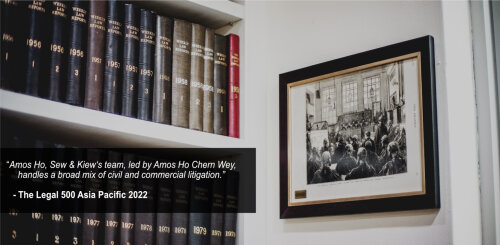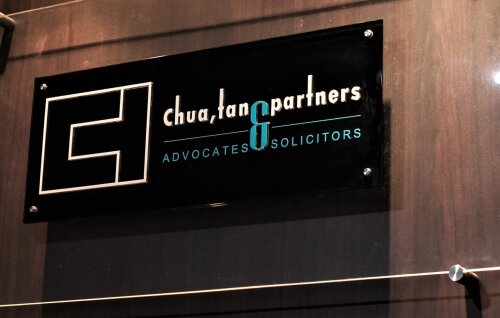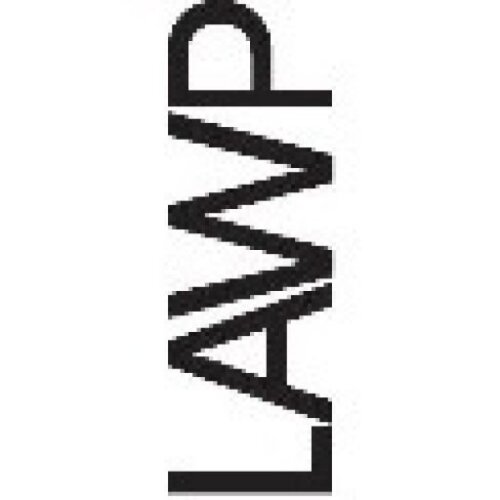Best Structured Finance Lawyers in Kuala Lumpur
Share your needs with us, get contacted by law firms.
Free. Takes 2 min.
List of the best lawyers in Kuala Lumpur, Malaysia
About Structured Finance Law in Kuala Lumpur, Malaysia
Structured finance refers to complex financial instruments offered to borrowers with unique and sophisticated needs that cannot be properly met with conventional financing. In Kuala Lumpur, Malaysia's capital and a central hub for finance in Southeast Asia, structured finance plays a vital role in supporting large-scale projects, corporate mergers and acquisitions, and infrastructure development. The laws and regulations governing structured finance in Kuala Lumpur are designed to create a reliable, transparent, and secure environment for investors and institutions, in line with Malaysia's aspirations as an international Islamic finance centre as well as a global financial player.
Why You May Need a Lawyer
Expert legal advice is critical in structured finance transactions due to their intricate nature and significant monetary values involved. Common scenarios where you might need a lawyer include:
- Setting up securitisation structures for converting illiquid assets into marketable securities
- Negotiating and drafting complex loan and security documentation
- Structuring Islamic finance products such as sukuk (Islamic bonds)
- Ensuring compliance with regulatory requirements imposed by Malaysian authorities like Bank Negara Malaysia and the Securities Commission Malaysia
- Advising on risk allocation and mitigation strategies in large infrastructure or project financing deals
- Resolving disputes arising from structured finance agreements, including enforcement and insolvency scenarios
- Assisting with cross-border deals involving foreign investors or international financial institutions
Local Laws Overview
Malaysia’s legal framework for structured finance in Kuala Lumpur includes several statutes and guidelines administered by different regulatory bodies:
- The Capital Markets and Services Act 2007 (CMSA): Governs the issuance of debt securities, including securitisation and structured products.
- Guidelines Issued by the Securities Commission Malaysia (SC): Provide regulations for asset-backed securities (ABS), sukuk issuances, and practices in the capital market.
- Bank Negara Malaysia (BNM) Guidelines: Regulate banking and financing institutions, including requirements for risk mitigation and reporting of complex finance transactions.
- Islamic Financial Services Act 2013 (IFSA): Oversees Islamic structured products, which are increasingly significant in Kuala Lumpur’s financial landscape.
- Other General Laws: Such as the Companies Act 2016 and the Contracts Act 1950, which apply to the formation, enforcement, and dissolution of finance agreements and entities.
Understanding these legal components and how they interact is essential for structured finance transactions, making local legal expertise invaluable.
Frequently Asked Questions
What is structured finance?
Structured finance is a form of financial arrangement that involves complex combinations of debt, equity, and derivatives, often created to meet the unique needs of large borrowers or special projects. Its goal is typically to improve liquidity, reduce risk, or enable large capital-raising.
Is structured finance legal in Malaysia?
Yes, structured finance is legal in Malaysia provided it complies with the regulations set by bodies such as the Securities Commission Malaysia and Bank Negara Malaysia, especially concerning disclosure, investor protection, and capital adequacy.
What are common structured finance products in Kuala Lumpur?
Common products include asset-backed securities (ABS), collateralised debt obligations (CDO), sukuk (Islamic bonds), project finance facilities, syndicated loans, and structured notes.
What is Islamic structured finance?
Islamic structured finance refers to finance arrangements compliant with Shariah law, such as sukuk. Kuala Lumpur is a global leader in Islamic finance, and the law strictly requires such products to avoid riba (interest) and gharar (uncertainty).
Who regulates structured finance in Kuala Lumpur?
The main regulators are the Securities Commission Malaysia for capital market products and Bank Negara Malaysia for banking and Islamic finance products. Other relevant authorities may include Bursa Malaysia and the Labuan Financial Services Authority for offshore transactions.
What are the main legal risks in structured finance transactions?
Risks include non-compliance with local regulations, enforceability of contracts, tax implications, insolvency of parties, cross-border legal issues, and risks of misrepresentation or fraud.
How can a lawyer assist in structured finance?
A lawyer can structure transactions, conduct due diligence, draft and review documents, ensure regulatory compliance, advise on risk, and resolve any legal disputes that may arise.
Are there specific rules for foreign investors in structured finance in Malaysia?
Yes, foreign participation is generally allowed but subject to certain conditions and approvals, especially in regulated sectors. There may be foreign exchange, tax, and ownership restrictions depending on the transaction structure.
What is securitisation and how is it regulated in Malaysia?
Securitisation is the process of pooling various financial assets and issuing securities backed by those assets. It is regulated under the Capital Markets and Services Act 2007 and SC guidelines, which set requirements on disclosure, risk retention, and eligible asset classes.
What should I do if there is a dispute over a structured finance deal?
It is important to seek legal advice immediately. Dispute resolution mechanisms may include negotiation, arbitration, or litigation, depending on the terms of the agreement and the nature of the dispute.
Additional Resources
If you need more information or guidance on structured finance law in Kuala Lumpur, the following resources and organizations can be helpful:
- Securities Commission Malaysia - Responsible for regulating Malaysia's capital market and providing guidelines on structured products
- Bank Negara Malaysia - Oversees banking, financial institutions, and Islamic finance
- Bursa Malaysia - The Kuala Lumpur stock exchange, which lists structured securities like bonds and sukuk
- Labuan Financial Services Authority - Regulates offshore finance activities, often used in cross-border structured finance
- Bar Council Malaysia - For finding qualified lawyers specializing in finance and corporate law
Next Steps
If you believe you need legal assistance with structured finance in Kuala Lumpur, consider taking these steps:
- Identify the type and scope of transaction or issue you are facing
- Gather all relevant documentation, agreements, and correspondence
- Consult an experienced lawyer or legal firm specializing in finance law
- Prepare questions about compliance, risks, and potential outcomes for your legal advisor
- Consider alternative dispute resolution if you are facing a conflict related to structured finance
- Stay informed of developments in Malaysia’s finance regulations, as these can affect both new and ongoing transactions
A proactive approach and expert legal guidance can help protect your interests and ensure that complex structured finance transactions are handled correctly and efficiently in Kuala Lumpur.
Lawzana helps you find the best lawyers and law firms in Kuala Lumpur through a curated and pre-screened list of qualified legal professionals. Our platform offers rankings and detailed profiles of attorneys and law firms, allowing you to compare based on practice areas, including Structured Finance, experience, and client feedback.
Each profile includes a description of the firm's areas of practice, client reviews, team members and partners, year of establishment, spoken languages, office locations, contact information, social media presence, and any published articles or resources. Most firms on our platform speak English and are experienced in both local and international legal matters.
Get a quote from top-rated law firms in Kuala Lumpur, Malaysia — quickly, securely, and without unnecessary hassle.
Disclaimer:
The information provided on this page is for general informational purposes only and does not constitute legal advice. While we strive to ensure the accuracy and relevance of the content, legal information may change over time, and interpretations of the law can vary. You should always consult with a qualified legal professional for advice specific to your situation.
We disclaim all liability for actions taken or not taken based on the content of this page. If you believe any information is incorrect or outdated, please contact us, and we will review and update it where appropriate.

















